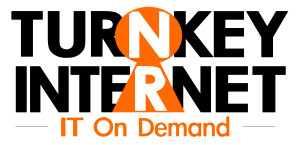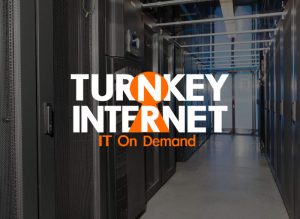Archive for the ‘cloud hosting’ tag
A Beginner’s Guide to Choosing the Right Web Hosting Solution no comments

Businesses are converting their IT infrastructure into the cloud every day – phone systems, virtual desktops, and office servers. But when your business makes that transition to The Cloud why do you need so many options that look similar but have different names like “Cloud Hosting” or “Virtual Servers”? Which type is best for you– and what’s in between?
The Cloud
“The Cloud” is one of the most popular terms on today’s internet but lacks an agreed-upon universal definition. The cloud offers scalability and reliability at a low cost; it can be accessed from anywhere with an internet connection via various technologies such as Voice over Internet Protocol (VoIP) telephone calls or video conferencing applications which use WebRTC.
Virtual Servers
Virtual servers are an efficient and cost-effective way to provide your company with the necessary computing resources. A single high-capacity server in a data center can host 10 or more virtual private servers, such that each client has privacy protections while still sharing certain amenities like customizable operating systems and software applications across all accounts on a said device–this model provides greater manageability as well!
Dedicated Servers
When you need the most power for your application, there’s no better way than with a dedicated server. This one-of-” kind” service offers all its benefits and more – like increased privacy (you won’t be sharing resources), and custom software designed just for YOU! With less traffic on an idle system thanks to low electricity consumption at night when systems aren’t being used; it will ultimately save money over time due in part to not having as many employees utilize expensive licenses across 3 regions each needing their copy–the savings add up fast
Cloud Hosting
Cloud Hosting can mean just about any type of hosted solution in a secure data center. The more advanced Cloud Hosted solutions providers are offering a robust scalable network of servers that can provide redundancy and scalability that otherwise is not present in a single virtual server or dedicated server. You must be careful when you shop for vendors who use the term “Cloud Hosting” to promote using the Cloud to host your application or server. What you generally want is a cloud hosting solution that offers you a ‘virtual machine’ in the cloud provider’s network, that offers some level of scalability, and redundancy.
TurnKey’s offering
TurnKey Cloud offers a full virtual machine on top of multiple redundant clusters of servers which provides the cloud benefits of scalability and redundancy to let you install any operating system and any applications without having to utilize software developers to convert their applications to a proprietary cloud platform. If it runs on the server in your office, it will run in the TurnKey Cloud platform.
Follow Us :Share :
Cloud or Dedicated Servers – What’s The Difference? no comments

Today’s businesses have several options available when it comes to hosting. Cloud hosting services have become increasingly popular, yet dedicated servers continue to offer the greatest flexibility and customization.
Are you confused about your options regarding cloud computing and dedicated hosting for your business? You need to understand each server type to choose the right one for your business.
Cloud Hosting
Cloud hosting has become increasingly popular in recent years as businesses have looked for efficient and secure ways to store, manage and process their data. The cloud is the delivery of on-demand computing resources over the Internet. A cloud server is a virtual server running in a cloud computing environment. A business migrates its data and applications from its physical servers into the cloud provider’s virtualized servers. Cloud hosting is an ideal solution if you want to enhance your IT performance without incurring huge costs on purchasing infrastructure.
Dedicated Server Hosting
Dedicated servers are known for their high-performing features in processing power and storage speed, are connected to high-speed internet connections, and are hosted in data centers. Dedicated servers can be used for any number of things, some of which is the hosting of websites or database-intensive applications. A good example of this could be CRM systems such as Microsoft Dynamics or SAP. As the name implies, each server is dedicated privately to one customer. That customer receives access to a physical server with the agreed-upon hardware specifications, processing, and storage, all in one unit.
Cloud vs Dedicated Servers
Determining which applications are best suited for your business, whether dedicated servers or cloud hosting, you must keep in mind what requirements and security measures are needed to create the most effective and efficient infrastructure for your business.
What should you consider before choosing a server for your business?
- What are your long-term goals?
- What are your IT requirements?
- What is you budget?
Once you have verified that a server meets your functional requirements you must also make sure you are not paying for anything you will not utilize.
Your primary concern is: What problem do you want to solve?
Hosting Solutions
Not sure what kind of hosting solutions or resources you need? Our team is happy to help you in any way to meet your business needs. Contact TurnKey Internet today and we will help you choose the best hosting solution for your business.
Follow Us :Share :
5 Advantages of Cloud Hosting 1 comment
Choosing to host your company’s IT infrastructure and data in the cloud is no easy decision. However, the number of advantages that the cloud offers you and your business can make this change well worth it. The cloud is able to offer you many more features and guarantees for your data than you typically have in your own on-site or in-office server room. Let’s take a look at some of the advantages hosting in the cloud will provide.
1. Reduced Data Loss
This is one of the first things cloud vendors will tell you, and they’ll be right. Many laptops are not safely protecting data with the appropriate encryption. Data is sent here and there and it’s lost here and there. Cloud encryption protects transmitted data every time. And then there’s the obvious data loss issue. How many hard drives need to fail before we all recognize the incredible peace of mind cloud storage can provide? Cloud hosting varies in its security offerings, so look for a host that offers secure firewalls and robust backups.
2. Better Monitoring
Centralized storage makes it easier to monitor and control your data. Yes, this does mean you’re putting all of your data eggs in one basket, but as an IT professional I would much rather know where my data is and focus my security efforts on that location than spread my data all over the place and hope for the best. Besides, “all in one place” doesn’t have the same meaning for cloud servers. Cloud networks are mirrored so data is safe, regardless of what might happen to a single machine.
3. Responding to Problems
If a cloud server is compromised, it’s a matter of seconds to restore all of the lost data from backups. This means you have no downtime, ever. You can restore data remotely, from anywhere, and with your robust cloud monitoring, you’ll know the second a problem arises. With all of your data in one location, you can easily assess the problem and fix it.
4. Improved Logs
Logging is often overlooked, or it’s an afterthought and this means you may not have enough room allocated for your logs. With the cloud, you can index your logs for instant search results. This is true real-time view of your information. If your company is concerned with establishing a server audit trail, you can easily opt-in to allocate resources for extended logging.
5. Improved Security Software Performance
Security vendors are more accountable when their clients are more vigilant. The security concerns so many of us have surrounding the cloud have made many security software companies step up their game. They’re not only making their software more comprehensive and robust, they’re making it more efficient. Cloud clients are watching their billable CPU cycles. They know how much it’s costing them to run software. Visibility equals accountability.
In the end, if you’re concerned about the security of your data, cloud hosting is the best possible option. Best of all, it is designed with businesses in mind—providing the kind of security and accessibility that has never been available before. In addition to all that, it’s cheaper and more efficient than housing your own infrastructure in-house.
Need help choosing the right Cloud solution for your business? Contact TurnKey Internet today for a FREE consultation with our cloud hosting experts! Visit our website at turnkeyinternet.net or call us at 877-539-4638
TurnKey Internet, Inc Expands Datacenter and Cloud Services to California no comments
LATHAM, NEW YORK (October 5th, 2016) – Leading Datacenter and Cloud Hosting Solutions provider TurnKey Internet, Inc. announced today that it is expanding its Datacenter and Cloud-based infrastructure into California. The Datacenter expansion builds on TurnKey Internet’s existing New York Datacenter by offering geographically specific and redundant, high-speed Cloud services from both their East Coast and new West Coast Facility.
The West Coast Datacenter, located in Los Angeles, California, offers multiple transit backbone providers with fiber network redundancy as well as physical security features such as Biometric hand scanners, IP cameras, 24/7 monitoring and manned building security. The facility also features multiple Uninterruptible Power Supply (UPS) Units, on-site Generator Protected Power, and advanced Fire Suppression and Detection systems.
TurnKey Internet’s next generation online backup service, TurnKey Vault, will now include both East Coast and West Coast disaster recovery storage locations which offer full Cloud replication, bare metal recovery, and encrypted backup & restore.
TurnKey Internet’s high speed Cloud platform, offering Cloud based virtual private servers will also now be offered from both West Coast and East Coast Datacenters. Colocation and Datacenter services will also be offered from both geographical locations.
“Extending our Datacenter, Colocation, and Cloud-Hosted services to California matches our vision of giving customers access to a ‘turnkey’ platform that delivers unmatched value and performance,” said Adam Wills, CEO of TurnKey Internet, Inc. He continued “This geographical expansion is an exciting step in the development of our Cloud-Hosted platform. Our clients can easily deploy and manage their Cloud infrastructure across multiple geographic locations. This provides a better experience by providing redundancy and performance increases through delivery of applications closer to the end-user.”
For more information about TurnKey Internet’s latest expansion or to speak with a Cloud Hosting Solutions expert, visit www.TurnKeyInternet.net
About TurnKey Internet
Founded in 1999, TurnKey Internet, Inc. is a full-service Cloud Hosting Solutions provider with Datacenters in New York and California specializing in Infrastructure as a Service (IaaS) to clients in more than 150 countries. Services offered in both East Coast and West Coast, USA – include Public Cloud, Private Cloud, Dedicated & Bare Metal Servers, Backup & Disaster Recovery, Online Storage, Web Hosting, Managed Hosting, Hybrid Solutions and Enterprise Colocation. Headquartered in New York’s Tech Valley Region, TurnKey Internet’s Flagship Datacenter offers SSAE 16 Type II certification powered exclusively by on-site Solar and Hydroelectric sources to provide a 100% renewable energy footprint. In 2013 the facility was designated as the 37th ENERGY STAR® Certified Datacenter in the United States. For more information, please call (518) 618-0999 or visit www.turnkeyinternet.net/media Follow Us : ![]()
![]()
![]()
![]()
![]()
Share : ![]()
![]()
![]()
![]()
![]()
DNS – The Domain Name System And The Cloud no comments
For this article, I thought I would take you a little into my world as an engineer/technician at Turnkey Internet. Before we begin, as usual, I like to ask you a question. Today’s question, “What is DNS?” It seems that every day I speak with a client about this mysterious creature named DNS. Most people I speak with either fall into 2 categories:
- People who know what DNS is
- People who do not know what DNS is
In this post, we’re going to deal with people on the second bullet point. To begin, we first must get the technical jargon out of the way before going any further. The worse is when you’re reading a post and the author is using acronyms that you do not know what they stand for. I’ve been guilty of this already in this post and should clear it up before moving forward.
DNS stands for Domain Name System. DNS (Domain Name System) is a naming system for computers, services or any resource connected to the internet. It translates IP addresses to a domain name. For example, 208.85.0.20 would translate to http://turnkeyinternet.net/ To see this for yourself, open a web browser and enter in the address bar, 208.85.0.20. Go ahead, I will wait.
Our main website, http://turnkeyinternet.net/ should of immediately opened in your web browser. That in a nut shell is what DNS is and does. Now, let’s see if we can delve a little deeper into on how this works. I’m a big believer in using real world examples to teach different concepts. Not everyone can visualize an IP address, but what about your mailing address? Or the cross streets that you may live on? Are you getting the theme here? To help you understand exactly how DNS works, let’s use the real world example of driving to your friends house
For this example, let’s say you received a phone call from a buddy who said to swing on by to his/her new place for a house warming. Your friend has just recently moved. Now, how do you find him? You would need some piece of information that would allow you know which house is your buddy’s house. This piece of information would be the mailing address. Using the mailing address, you can enter your buddies address into a GPS(Global Positioning System) and be navigated directly to the house warming. The mailing address or your home address would be the equivalent of your IP address. Your IP address on the internet is where your files reside that display your website.
You may be saying, “Yes, that’s pretty clear, but you said DNS converts an IP to a domain name. What does my mailing address have to do with that?” In order to answer that question, we must first ask, how do you get your actual mail delivered? I’m talking about the mailman walking to your home and placing bills into your mailbox. How does the mailman know where to go? Sure, he has your mailing address, but where is that information stored? If you guessed the Post Office, you would be correct.
Let’s say someone writes you a letter and drops it off at the post office. Post office workers look up your name in their system to find your mailing address. The letter is then given to the corresponding mailman to be delivered to your home address. This is what DNS does in a nutshell. You sign up for a domain name which you purchased through TurnKey Internet. The place you just purchased the domain from is your registrar which means they registered your domain name in their system. This process is of registering your domain in their system is what keeps other users from being able to buy your domain. In our example above, the post office would be the registrar. You registered your home address with the post office so when someone drops a letter off a the post office, the mail can be routed to your home via mailmen.
This is what name servers do. After purchasing a domain from a register, such as TurnKey Internet, you create name servers at the registrar to inform the rest of the internet where your website resides. Much the same way the post office uses mailing addresses to deliver mail to your home.
You see, when you view items in real world scenarios, it can help to shed some light on concepts that you may not fully understand such as DNS. There are more avenues that you can take with DNS, but the general method is still the same.
For example, let’s say you move your website to a different host, you would need to update your registrar with the new name servers to point to the new location for your site. It’s the same as when you move to a new home and have to request a change of address from the post office. The post office then updates all its files and records to reflect the new address. This could include sending your new address out to businesses that you’ve dealt with as well. The rest of the world has to be updated to your new address. On the internet, this is what is called propagation. It’s when your new name server and IP information are updated across the internet so that everyone knows where your new site resolves after changing hosts. This can take 24 to 48 hours
Well, I hope that helps to clear up some confusion on this matter. I didn’t include too much technical jargon as this article is more about getting you to understand how DNS works at a very high level. I hope with this information, it will help you to better understand how the DNS works and how your hosting works here at Turnkey Internet.
Until next time
TurnKey Internet, Inc. releases their “TurnKey Desk 2.0” cloud-hosted desktop no comments
 LATHAM, NEW YORK (August 20, 2013) – Sustainable IT solutions provider TurnKey Internet, Inc. announced today the rerelease of their cloud-hosted virtual desktop, the “TurnKey Desk 2.0.” With all new, easy-to-use features, the TurnKey Desk is now available on any smartphone, tablet, thin client, desktop PC or Mac. The platform is made easier to access, and can be preloaded with many more applications useful for individuals and businesses. Applications such as Microsoft Office and the Adobe Creative Suite or any customizable business applications needed, can be installed to the virtual desktop.
LATHAM, NEW YORK (August 20, 2013) – Sustainable IT solutions provider TurnKey Internet, Inc. announced today the rerelease of their cloud-hosted virtual desktop, the “TurnKey Desk 2.0.” With all new, easy-to-use features, the TurnKey Desk is now available on any smartphone, tablet, thin client, desktop PC or Mac. The platform is made easier to access, and can be preloaded with many more applications useful for individuals and businesses. Applications such as Microsoft Office and the Adobe Creative Suite or any customizable business applications needed, can be installed to the virtual desktop.
“By incorporating smartphones and tablets, the way a client can use the TurnKey Desk is almost limitless,” CEO, Adam Wills said. “Both start-up entrepreneurs and experienced CEO’s need a way to be able to easily work from their home, office, or while they are traveling. The TurnKey Desk allows this. Our virtual desktop provides security for any sized business to be confident that their information will always be safe and accessible in our SSAE-16 Type 2 certified data center.”
The TurnKey Desk can be used for companies where hundreds of employees are able to share files and documents with each other, be it down the hall, across the country or around the globe. Files can be accessed, shared and stored securely on the cloud to help make sharing documents easier and more efficient. The new platform allows for the option to have multiple images for various departments of an organization. These images contain the software applications specific for each department which can all be preset with permission levels for each user.
“Hosted Virtual Desktop market share is increasing every day. One of the reasons why, is the ability to replace aging office Desktop PC networks with Virtual Desktops accessed from thin clients,” Wills stated. “Thin clients cost far less than PC’s with less moving parts and need for maintenance. Since thin clients are only being used to access the virtual desktops, there are almost no IT related costs for your internal network once it is setup. Additionally, this improves your overall network security from our New York data center and decreases your overall costs.”
About Turnkey Internet
Founded in 1999, TurnKey Internet, Inc. is a full-service green data center and leading provider of sustainable web hosting and IT solutions. From its SSAE 16 Type 2 certified facility in Latham, NY—New York’s Tech Valley Region—TurnKey offers web hosting, communication services, web-based IT systems, software as a service (SaaS), enterprise colocation services, and computing as a service to clients in more than 150 countries. For more information, please call (518) 618-0999 or visit www.turnkeyinternet.net/media.
Cloud Tip of the Month- August 2013 no comments

Why move to The Cloud? Here is August’s cloud tip!
Cloud Architecture is Exceptionally Flexible
The entire concept of cloud computing is divided into three forms of cloud. These include Public cloud, Private Cloud and Hybrid Cloud. All three have significant characteristics; however their choice depends on the personal requirements of businesses.
Check out the benefits!
- Public Cloud
In this type of cloud form, data stored is in a cloud server- which is located at a distant place elsewhere. It enables users to share and access data from anywhere and at any point of time. This means public cloud promotes shared environment for businesses. It can save having to hire a tech department and can be placed in a data center like TurnKey, where our techs can handle your entire IT infrastructure.
- Private Cloud
A private cloud is beneficial for those organizations that do not want to share their confidential data with any third party. Data stored in a private cloud is secured in the firewall settings, which enable only the authorized parties to access data and do not invite any third party. The private cloud model is good for super-secure businesses, but tend to cost more to buy all the equipment and hire techs.
- Hybrid Cloud
A hybrid cloud is a mix of both and gives users or business entities the advantage of both the cloud environments. Suppose, a business enterprise wants to share its services and products with its clients across the globe, but at the same time wants to hide the confidential information from them, Hybrid cloud architecture would suit best for such types of businesses. Follow Us : ![]()
![]()
![]()
![]()
![]()
Share : ![]()
![]()
![]()
![]()
![]()






